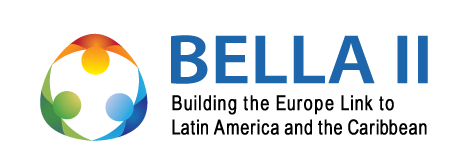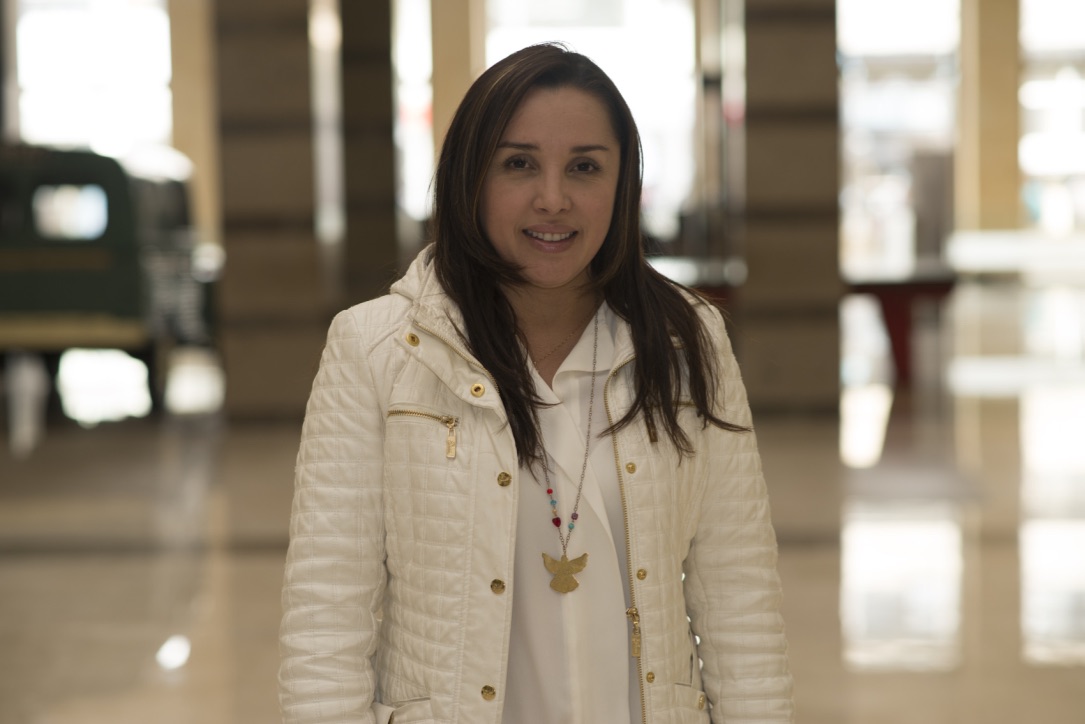The firm and determined words of the Executive Director of the host network of TICAL2018 and the 2nd Latin American e-Science Meeting leave no doubt: Colombia is ready to receive the events that will take place from September 3 to 5 at the Las Americas Convention Center, in Cartagena de Indias. Very close to completing a year in front of RENATA, Luz Miriam Díaz Patigño talked with DeCLARA about the challenge of organizing the events, her expectations for it and the history of the "Heroic City".
Hello, Luz Miriam! You are very close to completing one year in front of RENATA, and now with the challenge of being hosts and co-organizers of TICAL2018 and the 2nd Latin American e-Science Meeting with RedCLARA. How do you evaluate this experience and how are the preparations going?
For RENATA, as part of its commitment to strengthening the educational and scientific activity through ICTs, it is a source of pride and a great responsibility to convene the academic and scientific community of Colombia and Latin America to discuss, analyze and reflect on the digital transformation in institutions of Higher Education, Science and Culture. Digital transformation is a reality and RENATA is the right place to strengthen it.
We are very happy to welcome in our country the authors of the region’s 50 most innovative projects in the use of technology for the development of education and research. This year we will have speakers and authors from Argentina, Australia, Canada, Spain, the United States, England, Italy, Brazil, Chile, Costa Rica, Cuba, Ecuador, El Salvador, Mexico and, of course, Colombia. We will also have the presence of NREN leaders from Latin America, the United States and Europe.
Thanks to the commitment of the organizing committee, made up of the RENATA and RedCLARA working teams, TICAL2018 and the 2nd Latin American e-Science Meeting are ready to receive in Cartagena the university authorities and the academic and scientific community throughout the region. The attendees will have the best scenario for the relationship in favor of collaborative work with these guests. In addition, they will be able to participate in the workshops that we will carry out within the framework of the event.
How do you evaluate the current state of the "Digital Transformation of Universities" in Colombia?
As I have said, digital transformation is a reality and a challenge for universities not only in Colombia but all around the world, a process that is already in action. Our institutions are experiencing a very interesting digital transformation process and the massive adoption of digital information and communication technologies for education and research is one of our most ambitious bets. Institutions are aware that it can not be outside of what the country demands today.
What are the main challenges and opportunities to effectively achieve this transformation?
One of the biggest challenges is the adaptation to change. Achieving digital transformation in institutions implies a change in the way we understand the ‘whys and whats’ of the technologies, and in how we internalize the sense that networks of advanced technology have as a technological stage for work between people.
As opportunities, I believe that digital transformation should allow us to do new things in new ways. For universities it is an opportunity to improve the processes of learning and research.
How do you think the Colombian ICT community and RENATA itself will benefit from TICAL2018 and the 2nd e-Science Meeting?
TICAL 2018 and the 2nd Latin American e-Science Meeting will be a magnificent stage for the inspiration of the institutions of the region and a very good opportunity to know and better understand the potential offered by national research and education networks, both to our institutions and to our countries.
And how about Cartagena? What can you say about the 'Heroic City', so well known for its beauty and history?
Cartagena de Indias, founded in the 16th century, is one of the most beautiful colonial cities on the continent. It was declared a National Heritage of Colombia in 1959 and a World Heritage Site by UNESCO in 1984. Since its foundation and during the Spanish vice regal period, the city has been one of the most important ports in America. Cartagena has established itself as a stage for political, cultural and economic encounters not only in Colombia but in the world. It also has a wide range of hotel and tourism that you can enjoy before or after the event. Cartagena is also the headquarters of RIESCAR, the regional academic network that is part of RENATA serving the departments of Bolívar, Guajira, Cesar, Magdalena, Sucre and Córdoba.
We are very happy that Cartagena is the host city of TICAL for the second time. It is the best scenario to welcome the rectors, vice-rectors and directors of IT and talk about digital transformation in universities.
Personally, what are your expectations regarding TICAL - e-Science?
Our greatest challenge is to generate the articulation for collaborative work with institutions throughout the region. We want the academic and scientific community to have the opportunity to discover new ways and possibilities for the development of collaborative activities.
Also, that the event is an inspiration for our institutions. We hope to have the participation of the university authorities and the actors of science, education, innovation technology in the country. For RENATA it will also be an opportunity to position and appropriate the benefits and potential of the network. RENATA has one of the most robust networks in Latin America and our main goal is that this great highway is filled with data for the benefit of the academic community and scientific of the country.





